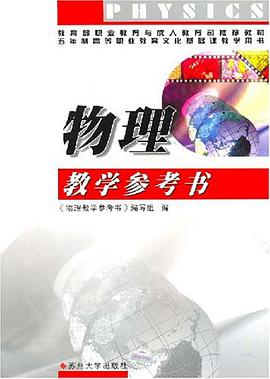

具体描述
INTRODUCTION: Learning French with Theme et Variations
The basic components of Theme et Variations are the textbook, the workbook, and the laboratory tapes
The workbook contains tally sheets on which you record your progress with the exercises in the text and
tapes; it also presents two new exercises-the Comprehension auditive and the Exercices ecrits. Here is a de-
scription of the several types of exercise, reading, and grammatical materials in the program, with suggestions
of ways to study them.
1. Conversations (printed in the text, recorded on the tapes, tally sheet in the workbook)
The conversations, or mini-dialogues, at the beginning of each lesson in the textbook will be used for
several kinds of practice in the classroom. They are recorded on the tapes, so you can practice them in the
laboratory either before or after they are presented in the classroom.* Whenever you practice a conversation
in the laboratory, place a checkmark in the appropriate tally sheet box ( ). For the first lesson, the taler
sheet appears on workbook page 19. English equivalents of the conversations are found in workbook Appen-
dix C, pages 173 208. These equivalents will be of use to some students as a prompter for learning and re-
view. //
2. Exercices oraux (printed in the text, selectively recorded on the tapes, tally sheet in the workbook)
Most of the oral exercises will be worked in class. One type of exercise requires structural manipula-
tions and has predictable responses. Another type consists of questions whose answers differ for each indi-
vidual. It will be to your advantage to go over the second type carefully and think of possible answers to
give your instructor or classmates.
You are expected to look up the meaning of new words occurring in the exercises, and to read the
grammar explanations at home before attending the class for which the exercises have been scheduled.
About 60% of the oral exercises are available on tape. Exercises recorded as they appear in the text are
marked with a tape symbol: 2.1 A. Exercises that have been modified for recording are marked with a
modified tape symbol: O 2.4 A. Whether or not these exercises are completed in class, they should always
be performed afterwards in the language laboratory.
Each item of the recorded exercises is recorded in the following manner:
Item Number -~ Question and/or Cue -~ (pause) ~ Correct Answer -~ (pause)
You give your answer during the first pause, then listen to the correct answer on the tape and compare it
with your own.
The workbook contains tally sheets to help you keep track of your performance on Exercices oraux.
The tally sheet for the first lesson (workbook page 19) begins like this:
1.1 B
This is a repetition exercise. The individual items of repetition exercises are not numbered on the tally sheet.
Only the exercise identification letter is given.
The next item on the tally sheet for the first lesson is as follows:
1.1 C 1 2 3 4 5 6 7 8
The consecutive numbers after the exercise identification letter correspond to the item numbers of the exer-
cise as they appear in the textbook.
For most exercises, you will not need to bring your textbook to the laboratory. (For a few exercises,
however, you will need to consult pictures from the text that are not duplicated in the workbook.) The ex-
ercises should always be performed without the aid of the printed text. Listen to the directions on the tape,
answer in the pause provided, listen to the answers recorded on the tape. If you have made an error, circle
or check the item number on your tally sheet. After the laboratory session, look no in the textbook the
作者简介
目录信息
读后感
评分
评分
评分
评分
用户评价
这本书的作者似乎坚信,学习语言的痛苦是通往精通的必经之路。因此,练习册中的错误设计和陷阱设置得非常巧妙,充满了“反直觉”的陷阱。例如,在涉及名词复数形式的时候,它会故意混入大量不规则的变化,并且在同一页的不同练习中,以不同的方式来测试你对同一个规则的掌握程度。你以为你掌握了,但下一秒,一个看似微不足道的介词变化就会让你前功尽弃。我注意到,这本书很少使用提示或引导性的语言;它更像是在设置一个逻辑陷阱,然后安静地等待你掉进去,再让你自己爬出来。这种自救的过程,虽然令人沮丧,却极大地强化了神经记忆。很多时候,我做完一个练习,会立刻去翻阅后面的答案解析,不是为了对答案,而是为了理解“我错在哪里”以及“作者是如何预设我可能会错”。这种深度的自我反思,远比被动接受知识要有效得多。这本书的价值,并不在于它教了你什么,而在于它让你在犯错中“学会了如何学习法语”。
评分作为一本“实用导论”(A Practical Introduction),这本书的“实用性”体现在一种近乎残酷的纯粹性上。它完全摒弃了任何与日常对话或文化交流相关的花架子。你不会在这里找到关于“在巴黎如何点咖啡”的对话脚本,也不会有任何关于法国政治或艺术的背景介绍。这本书的唯一目的,是让你掌握法语的骨骼结构——语法。它的实用,在于它能让你在面对任何正式的法语文本时,都有能力去解剖它,去理解它为何如此构建。我记得有一次我尝试阅读一篇难度略高的法语新闻报道,在查阅了这本书中关于“关系代词的复杂用法”那一页之后,原本令人头疼的冗长句子忽然间变得清晰可辨。那种感觉,就像是有人递给你一把万能钥匙,让你能打开所有紧闭的语法之门。然而,这种实用性也带来了极大的副作用:学完这本书,你可能会准确地写出最完美的法语陈述句,但你很可能在真正的咖啡馆里,因为紧张而说不出“Bonjour”。它培养的是一个完美的“语法工程师”,而不是一个流畅的“语言交流者”。对我而言,这既是它的优点,也是它最大的局限。
评分这本书的“主题与变化”(Theme et Variations)部分,与其说是变化,不如说更像是一场无边无际的迷宫探索。我原本以为“主题”会提供一个清晰的语法框架,然后“变化”会提供一些巧妙的变体练习来巩固知识点。结果呢?它直接把你扔进了一个由法语特有的复杂结构构成的漩涡里。比如,关于虚拟式(Subjonctif)的章节,它不是循序渐进地告诉你什么时候该用,什么时候不该用,而是直接抛出了一整页的、看似毫无关联的从句结构,然后要求你自行找出其中的模式。这种教学方法,对于那些喜欢“先理解规则再应用”的学习者来说,简直是灾难性的。我时常感到自己像个侦探,在浩瀚的例句中寻找那条隐藏的逻辑线索。每当我攻克了一个看似无解的练习,那种成就感是巨大的,但随之而来的,是对下一页将要面对的未知挑战的深深的恐惧。这种学习过程的张力,是那种提供标准答案和解析的现代教材所无法比拟的。它迫使你的大脑以前所未有的速度运转,不断地在“记忆”和“推理”之间切换,直到某一个瞬间,那些原本看似随机的词语和结构突然在你脑中“咔哒”一声,找到了它们应有的位置。这感觉,就像是终于破解了一个困扰多年的密码。
评分从装帧和纸张的角度来看,这本书的耐用性令人钦佩。我随身带着它,在地铁上、咖啡馆里,甚至在一次意外的雨天,它都经受住了考验,封面虽然有些卷边,但内页的油墨没有丝毫洇开的迹象。这似乎在无声地传达一个信息:这本书是为长期、反复的使用而设计的,它预期你会把它翻阅到卷边、磨损,甚至可能被咖啡渍点缀。它不是那种看完一次就束之高阁的“入门读物”,而更像是一个可以随时取用的工具箱。与其他那些设计精美、内容却很快过时的教材不同,这本书里的语法点是永恒的,是法语句子的基石。我可以预见,即使我将来学会了更高级的表达,我依然会时不时地翻开这本书的某一页,去检查一个被我遗忘已久的细微差别。它不是一个短暂的旅伴,而更像是一个沉默的、可靠的、摆在书架最底层的“参考常量”。它的价值不在于它如何让你快速开始说法语,而在于它如何让你在未来几十年里,能够准确、无误地写出法语。它的存在本身,就是对“语言学习需要耐心和毅力”这一信条的有力佐证。
评分这本书的封面设计简洁得有些过分了,那种经典的法式蓝和白,看起来就像是某个大学法语系角落里被遗忘多年的老教材。我当初买它纯粹是因为名字听起来很“实用”——《Cahier d'Exercices》,练习册,这正是我需要的。然而,当我翻开第一页,那种期待立刻被一种近乎原始的、未加修饰的德性所取代。它没有那些花哨的彩图,没有引人入胜的文化小故事,甚至连字体选择都透露着一种上个世纪八十年代的严肃感。说实话,初次接触时,我差点想把它塞回书架深处。里面的排版极其紧凑,几乎每一页都被密密麻麻的空格和要求填满,仿佛作者在用一种近乎军事化的口吻告诉你:这里没有喘息的机会,只有无休止的动词变位和名词的阴阳性测试。这种直接的、毫不妥协的教学方式,对于习惯了现代多媒体互动的学习者来说,无疑是一种挑战。它要求你放下手机,拿起笔,用最传统的方式与法语进行最基础的搏斗。它更像是一份沉甸甸的合约,而不是一本轻松愉快的学习伙伴。我花了整整一个周末才适应这种“硬核”的节奏,感觉自己像个刚踏入古老图书馆的学徒,面对堆积如山的羊皮卷,必须靠自己的毅力去解读那些晦涩的符号。
评分 评分 评分 评分 评分相关图书
本站所有内容均为互联网搜索引擎提供的公开搜索信息,本站不存储任何数据与内容,任何内容与数据均与本站无关,如有需要请联系相关搜索引擎包括但不限于百度,google,bing,sogou 等
© 2026 book.quotespace.org All Rights Reserved. 小美书屋 版权所有




















